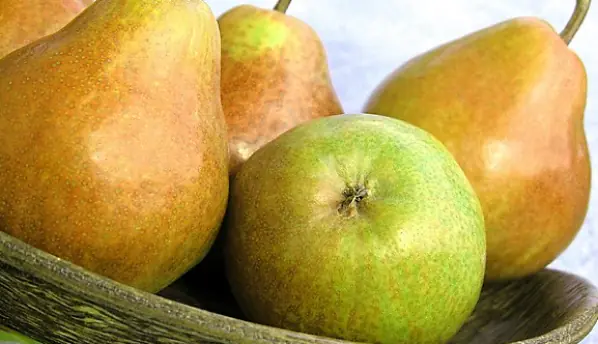Digestive problems can lead to serious illnesses, so it is important to monitor the health of your gastrointestinal tract. Pear juice will help with this, as it contains valuable substances to normalize intestinal function and prevent the development of pathogenic bacteria.
One of the main components of pear juice is organic zinc, which is present in greater quantities than other fruits such as apricots, apples, peaches, plums and black currants. In addition, pear juice contains carbohydrates, organic acids, tannins, vitamins C, P, carotene, and microelements (molybdenum, nickel, fluorine, iodine). Early varieties of pears are rich in manganese, and late varieties are rich in iron.
Studies have shown that wild pear juice, especially unripe ones, can inhibit the growth and reproduction of bacteria such as staphylococcus, dysentery and E. coli. Some other pear varieties also have similar properties, but to a lesser extent.
100% freshly squeezed pear juice is an effective colon cleanser. If you drink it on an empty stomach, it will have an immediate laxative effect. However, to treat the intestines, it is better to drink pear juice between meals on an empty stomach, half an hour or an hour before meals, and no earlier than an hour after meals. If you drink juice immediately after eating, fermentation will begin in the stomach.
In addition, it is worth considering that freshly squeezed juice has both positive and negative sides. On the one hand, it is rich in beneficial vitamins and minerals that help improve health. On the other hand, excessive consumption of freshly squeezed juice can cause some health problems, especially if you have gastrointestinal diseases. Therefore, it is recommended to consult a doctor before drinking pear juice.
In conclusion, pear juice is a valuable source of nutrients that help normalize bowel function and prevent the development of diseases. However, its use should be limited and certain rules should be followed to avoid unwanted consequences.



